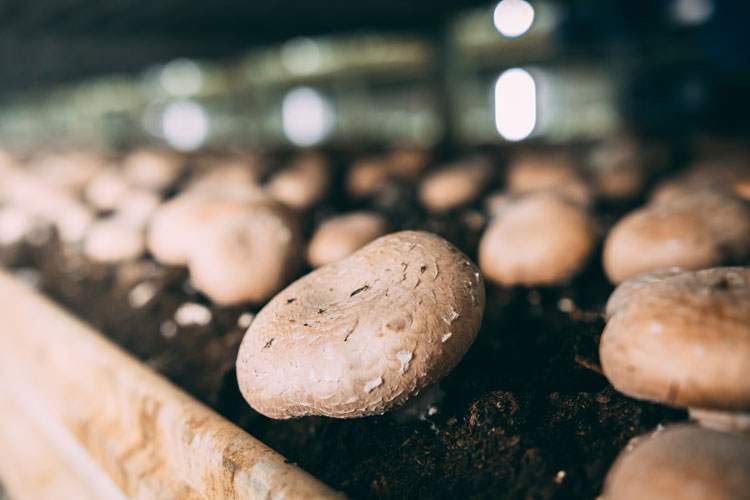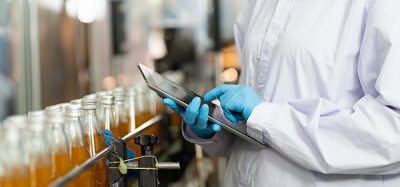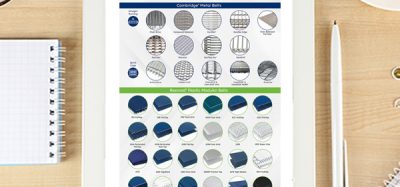The right chemical for a food‐safe plant
- Like
- Digg
- Del
- Tumblr
- VKontakte
- Buffer
- Love This
- Odnoklassniki
- Meneame
- Blogger
- Amazon
- Yahoo Mail
- Gmail
- AOL
- Newsvine
- HackerNews
- Evernote
- MySpace
- Mail.ru
- Viadeo
- Line
- Comments
- Yummly
- SMS
- Viber
- Telegram
- Subscribe
- Skype
- Facebook Messenger
- Kakao
- LiveJournal
- Yammer
- Edgar
- Fintel
- Mix
- Instapaper
- Copy Link
Posted: 20 November 2020 | New Food | No comments yet
OKECHAMP’s Deputy Maintenance Manager explains how he keeps the company’s production zones safe and compliant by using high-quality maintenance chemicals.


Food safety should be key in every food processing company. An important factor to ensuring this safety and that strict regulations are being met, lies in choosing the right maintenance chemicals for production zones.
Piotr Leśniczak, Deputy Maintenance Manager at vegetable processor, OKECHAMP, explains how he keeps the production zones in his company food safe with CRC H1 Perma-Lock products.
Q: How important is food safety in your company?
Like most food processing companies, OKECHAMP regards food safety as a crucial aspect, and as a Maintenance Manager, this is one of the core pillars of my role. Not only do we have detailed rules about working with allergens, it is also key that we use the permitted chemicals for each area. For example, in food processing zones we will only use H1 lubricants to prevent contamination.
Food safety should be key in every food processing company. An important factor to ensuring this safety and that strict regulations are being met, lies in choosing the right maintenance chemicals for production zones.
Piotr Leśniczak, Deputy Maintenance Manager at vegetable processor, OKECHAMP, explains how he keeps the production zones in his company food safe with CRC H1 Perma-Lock products.
Q: How important is food safety in your company?
Like most food processing companies, OKECHAMP regards food safety as a crucial aspect, and as a Maintenance Manager, this is one of the core pillars of my role. Not only do we have detailed rules about working with allergens, it is also key that we use the permitted chemicals for each area. For example, in food processing zones we will only use H1 lubricants to prevent contamination.
Q: What other precautions concerning maintenance chemicals do you take to ensure food safety?
All chemical products are evaluated by our quality and safety department before they are considered for use in the plant. They check the quality and food safety of the products and determine if they can be used and where exactly. For example, in the production zones, we are only allowed to use H1 lubricants, given that they can come into incidental contact with food without it being a hazard for food safety. By extension, all products in our plant need to be NSF approved.
In general, we follow the Hazard Analysis Critical Control Points (HACCP) programme always and everywhere. To be able to be compliant with HACCP, we rely on detailed information of our suppliers.
Q: You use CRC chemicals in your production plant; why did you choose CRC as a partner?
CRC products fit perfectly into our vision of food safety. It also offers an extensive range of NSF registered products, so there is always a product that can get the job done. Moreover, CRC chemicals are very high quality, easy to use, and always readily available.
Another benefit of CRC is the service that they provide. If I have a specific problem in the production line, a CRC representative helps me to find the perfect product for this issue. Thanks to the online platform ‘My CRC’, I receive updated safety data sheets as soon as they are available, which helps to keep me informed of current – and ever changing – regulation.
Q: CRC has now equipped its H1 lubricants with a Perma-Lock actuator; do you see the advantages of this Perma-Lock system?
Definitely! The big advantage is that the Perma-Lock actuator does not have any loose plastic parts that could contaminate the food processing zone. Straws and buttons of regular aerosol cans can easily get lost and when they wind up in the production line, this can lead to a costly loss of efficiency. With the Perma‐Lock actuator, I can be sure that this will not happen.


Piotr is Engineer and Deputy Maintenance Manager of OKECHAMP, an important Polish processor of mushrooms and vegetables that exports internationally. His main task is to ensure the continuity of the production process on a technical level; this includes maintaining a trouble‐free operation of the machine park, preventive inspections and continuous optimisation of the production process.








